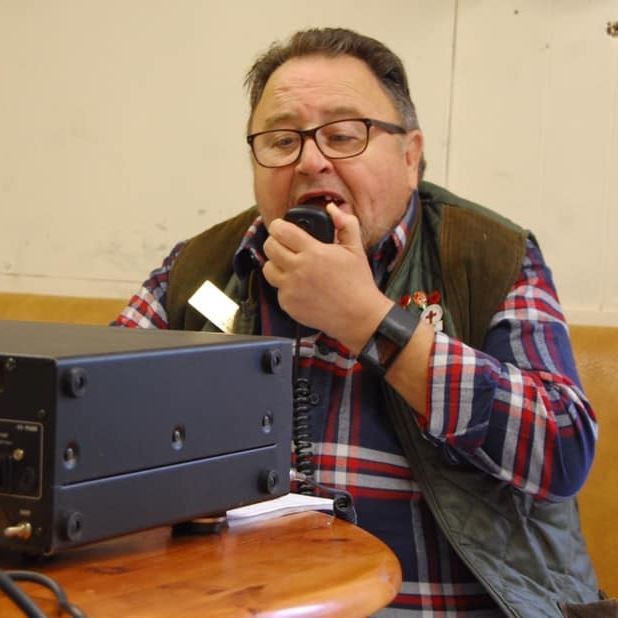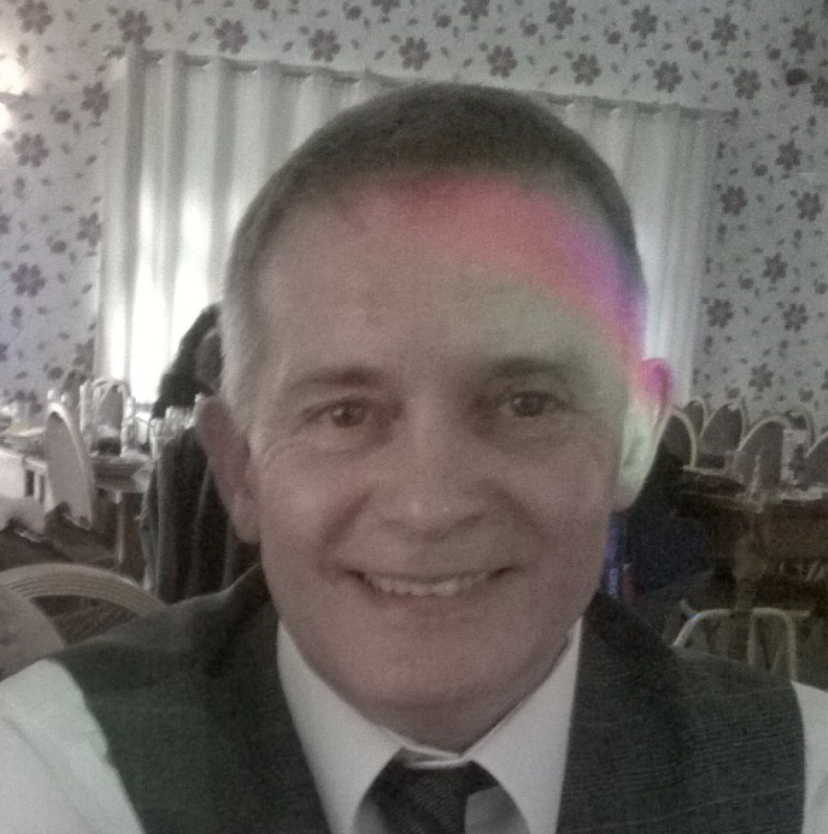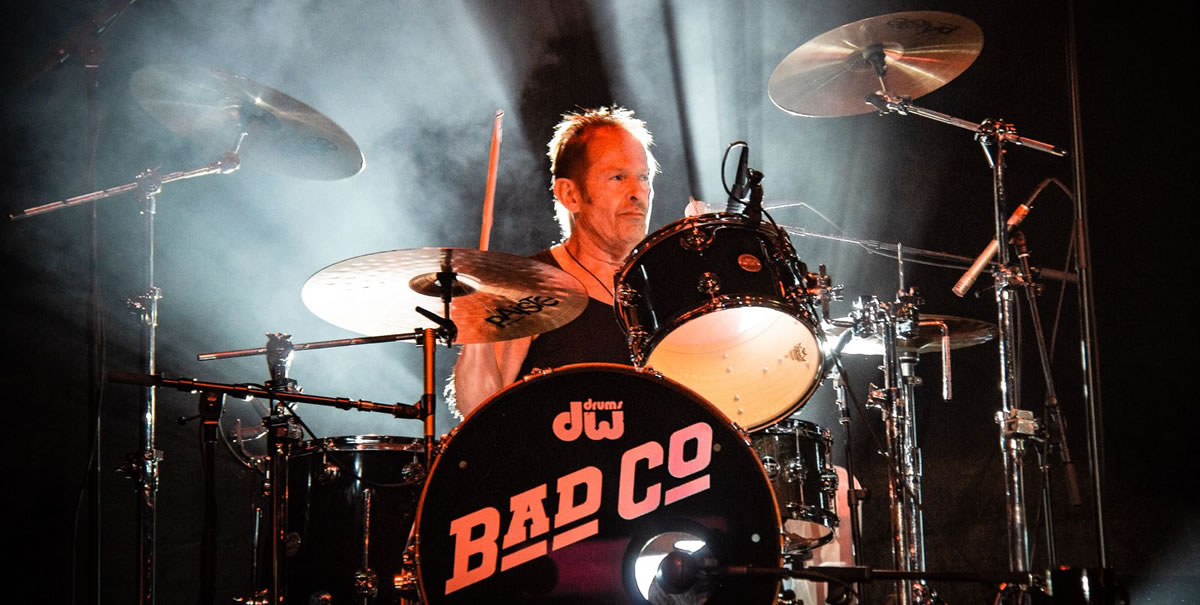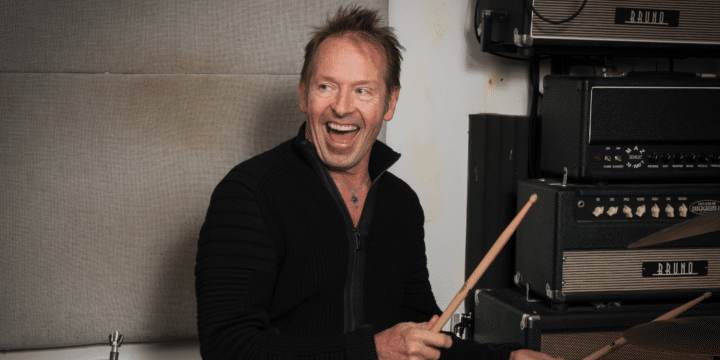Simon Kirke Net Worth - The Rhythmic Pulse Behind Classic Rock's Fortune
As the drummer for iconic bands Free and Bad Company, Kirke's percussive prowess has contributed not only to the sonic landscapes of timeless classics but also to the accumulation of a fortune that reflects his impact on the music industry. This article delves into the multifaceted layers of Simon Kirke net worth, exploring the financial tapestry woven through decades of musical innovation, solo ventures, entrepreneurial endeavors, and philanthropic pursuits.
Author:Alex MercerReviewer:Nathanial BlackwoodDec 04, 202357.3K Shares1M Views

Simon Kirke, the rhythmic heartbeat behind classic rock, stands as a living testament to the enduring power of music. Kirke's journey from the pulsating streets of the 1960s music scene to the global stage has not only left an indelible mark on the sound of an era but has also translated into a substantial net worth.
As the drummer for iconic bands Free and Bad Company, Kirke's percussive prowess has contributed not only to the sonic landscapes of timeless classics but also to the accumulation of a fortune that reflects his impact on the music industry. This article delves into the multifaceted layers of Simon Kirke net worth, exploring the financial tapestry woven through decades of musical innovation, solo ventures, entrepreneurial endeavors, and philanthropic pursuits.
Quick Facts About Simon Kirke
| Date Of Birth | Jul 28, 1949 |
| Place Of Birth | Lambeth |
| Gender | Male |
| Profession | Lambeth |
| Nationality | England |
Early Years And Rise To Prominence
On July 28, 1949, Simon Kirke was born in Lambeth, South London, England; his parents are Vivian and Olive. On his mother's side, he was descended from the Gibson-Craig baronets, and on his father's side, from landed gentry from Nottinghamshire. A large portion of Kirke's early years were spent in rural Wales.
He returned to London at the age of 17, having dropped out of school, and looked for work as a drummer in the developing blues scene of the city. After searching for a gig for over two years without success, he eventually discovered one when he got to know guitarist Paul Kossoff of the band Black Cat Bones. In the end, Kirke took on the role of drummer for the band.
Music Career Of Simon Kirke
Simon Kirke is a British drummer best known for his work with the rock bands Free and Bad Company. Here's an overview of his music career:
- Free (1968–1973) -Simon Kirke gained prominence as the drummer for the rock band Free. The band achieved success with songs like "All Right Now," which became a classic rock anthem. Free disbanded in 1973.
- Bad Company (1973–1982, 1986–1999, 2001–present) -Kirke co-founded Bad Company in 1973 with former Free bandmate Paul Rodgers. Bad Company enjoyed commercial success with albums like "Bad Company" and "Straight Shooter," featuring hits such as "Can't Get Enough" and "Feel Like Makin' Love." The band went through various lineup changes, but Kirke has been a constant member.
- Solo and Other Collaborations -Apart from his work with Free and Bad Company, Kirke has also pursued solo projects and collaborated with other artists. He released solo albums such as "Simon Kirke" (1977) and "F.U.N." (2017). He has also played as a session musician for various artists.
- Reunions and Tours -Bad Company went through several hiatuses and reunions. Kirke has been part of various Bad Company reunions and anniversary tours, keeping the band's legacy alive.
- Recognition and Legacy -Simon Kirke is recognized for his solid and versatile drumming style. Both Free and Bad Company have left a lasting impact on the rock music scene, and their songs continue to be celebrated.
Free
Kirke and Kossoff joined forces with bassist Andy Fraser and singer Paul Rodgers to form the rock group Free in 1968. The group swiftly recorded "Tons of Sobs," their debut studio album, which Island Records published in the UK early in 1969. Later in the year, Free released its second album of the same name. These first two albums didn't do that well in terms of sales.
The band's third album, "Fire and Water," which was released in 1970, marked their big break commercially. The album peaked at number two on the UK Albums Chart and gave rise to Free's iconic smash single, "All Right Now," which became the number one record in more than 20 countries across the globe. The band used the song to help them get a concert at the Isle of Wight Festival in 1970.
After "Fire and Water" and "All Right Now," which were commercial hits, Free's album "Highway" was a commercial letdown. The single "My Brother Jake," which peaked at number four in the UK, helped the group recover in 1971. Following that, animosity between Fraser and Rodgers led to the dissolution of Free.
In 1972, the group came back together and put out the album "Free at Last." Fraser soon quit the group, and Tetsu Yamauchi, a Japanese bassist, and John Bundrick, a Japanese keyboardist, were brought in by the surviving members. The last Free album, "Heartbreaker," was recorded with the new lineup and released towards the end of 1972. Free broke up the next year.
Bad Company
Kirke and Rodgers joined guitarist Mick Ralphs and bassist Boz Burrell to form the rock supergroup Bad Company following the breakup of Free. With their self-titled debut studio album, which peaked at number one in the US and number three in the UK, the band enjoyed instant success. With its second album, "Straight Shooter," released in 1975, Bad Company maintained its success.
It peaked at number three in the US and the UK and included the hits "Good Lovin' Gone Bad" and "Feel Like Makin' Love." Following its release in 1976, the band's second album, "Run with the Pack," peaked at number five in the US and number four in the UK. Two hits that became rock radio mainstays were the title tune and "Silver, Blue and Gold." After that, Bad Company released the albums "Desolation Angels" in 1979 and "Burnin' Sky" in 1977.
"Rough Diamonds," the band's final album recorded with the original lineup, was released in 1982. Following that, Bad Company broke up. Following their reunion and with Brian Howe leading the group, Bad Company recorded and released the album "Fame and Fortune" in 1986. Two years later, "Dangerous Age," the first album by Bad Company including bassist Steve Price, was released.
"Holy Water," the band's 1990 album, including the hits "If You Needed Somebody," "Boys Cry Tough," and the title track. "Here Comes Trouble," Bad Company's ninth studio album, was released in 1992 and marked the band's final record with Howe at the forefront.
Robert Hart sang lead on the group's follow-up studio album, "Company of Strangers," released in 1995. Hart remained until 1996's "Stories Told & Untold" album. Bad Company has only put out live albums and compilation albums since then. With Kirke as the lone surviving original member, the band has also continued to tour.
Other Musical Projects
A joint album, "Kossoff Kirke Tetsu Rabbit," was one of Kirke's other musical endeavors. It was recorded with Paul Kossoff, a fellow member of the Free band, as well as Tetsu Yamauchi and John Bundrick, who would later join the Free band. In 1972, the album was released.
Ten years later, Kirke became a member of the group Wildlife, whose self-titled debut album was released in 1983. Afterwards, Kirke started a solo career, putting out the albums "All Because of You" (2017), "Filling the Void" (2011), and "Seven Rays of Hope" (2005).
Albums And Sales
Free
| THE VERY BEST OF (2010) | 100,000 |
| ALL RIGHT NOW (1999) | 100,000 |
| ALL RIGHT NOW - THE COLLECTION (2012) | 60,000 |
| THE FREE STORY (1973) | 60,000 |
Bad Company
| BAD COMPANY (1974) | 5,100,000 |
| 10 FROM 6 (1985) | 3,865,000 |
| STRAIGHT SHOOTER (1975) | 3,150,000 |
| DESOLATION ANGELS (1979) | 2,000,000 |
| RUN WITH THE PACK (1976) | 1,100,000 |
Simon Kirke's Net Worth
The estimated net worth or net income of Simon Kirke is $20 million. His primary career as a drummer, musician, and singer-songwriter has brought him a significant amount of cash. Beyond the collective success of Free and Bad Company, Simon Kirke showcased his individual artistry through solo ventures. His solo albums, such as "Simon Kirke" (1977) and "F.U.N." (2011), revealed a more personal and introspective side of the musician. Kirke's solo work allowed him to experiment with different musical styles and showcase his skills not just as a drummer, but as a versatile artist.
Real Estate Properties
Simon owns an apartment in Manhattan and multiple properties in East Hampton. His main home is a massive mansion with expansive lawns located in East Hampton. It is most likely valued at $10 million. A nine-million-dollar East Hampton property with eleven bedrooms was listed by Simon's ex-wife Lorraine in 2009. Simon put his nearby cottage up for sale in 2016 for $1.4 million.
Charity Work Of Simon Kirke
Simon Kirke has been actively involved in charity work, demonstrating a commitment to causes close to his heart.
- Cancer Research and Treatment -Kirke has been associated with initiatives supporting cancer research and treatment. His involvement in these causes reflects a dedication to making a positive impact on healthcare and the lives of those affected by cancer.
- Environmental Advocacy -Kirke is known for his environmental advocacy, supporting causes related to sustainability and raising awareness about climate change. His efforts align with the broader movement towards environmental conservation and addressing global environmental challenges.
- Benefit Concerts and Events -Like many musicians, Kirke has likely participated in or supported various benefit concerts and events aimed at raising funds for charitable organizations. Such events provide a platform for artists to contribute to causes they are passionate about.
- Community Engagement - Kirke's engagement with charitable activities may extend to community-based initiatives, supporting local organizations and projects that focus on education, healthcare, and community development.
Wife & Kids
Kirke has three children, Lola, Jemima, and Domino, with his wife Maria. Jemima Kirke is an artist and actor best known for her work on the HBO series "Girls," Domino is a singer, and Lola is an actress and singer-songwriter who appeared in the Noah Baumbach film "Mistress America."
The three of them work in the entertainment industry. From his prior relationship with Marissa Creager, Kirke also had a kid named Simon. Simon died in 2017 from cerebral palsy-related problems.
Interesting Facts About Simon Kirke
- Simon Kirke's rhythmic journey began in the vibrant London music scene of the 1960s.
- Despite being known for his drumming, Kirke is a multi-instrumentalist, showcasing his versatility in various musical domains.
- An artistic family background set the stage for Kirke's creative inclinations, with his brother, Paul Kirke, making a mark as a notable painter.
- The move from England to the United States in the early '90s marked a significant shift in Kirke's personal and professional life.
- Beyond the drum kit, Kirke lent his rhythmic touch to film, contributing to the soundtrack of the movie "The Contender" in 2000.
- Kirke took on the role of an author, sharing his life and experiences in his autobiography, "It's Not Only Rock 'n' Roll."
- Known for more than just music, Kirke actively supports environmental causes, advocating for sustainability and climate change awareness.
- Before the fame with Free and Bad Company, Kirke briefly played with the Small Faces, adding an interesting chapter to his musical resume.
- In 1987, Kirke's work with Bad Company earned him a Grammy nomination, acknowledging the band's enduring impact on the music scene.
- Kirke extends his musical influence beyond playing by mentoring aspiring drummers, contributing to the growth of the next generation.
- A brief but impactful collaboration with Jimi Hendrix stands as a unique highlight in Kirke's musical journey.
- Despite his rock roots, Kirke has a profound appreciation for jazz, drawing inspiration from the genre's intricate rhythms.
- The induction of Free into the Blues Hall of Fame in 2000 solidifies the band's legacy as contributors to blues-infused rock.
- Active on social media, Kirke uses platforms to connect with fans, sharing glimpses of his musical pursuits and personal interests.
- Residing in New York, Kirke's connection with the city goes beyond living there; it's a place where he actively contributed to the music scene and established his own drum shop.
Simon Kirke Net Worth - FAQs
Who Is Simon Kirke?
Simon Kirke is a British musician and drummer, best known for his roles in the bands Free and Bad Company. Born on July 28, 1949, in Lambeth, London, Kirke has had a significant impact on the classic rock genre with his distinctive drumming style.
What Are Simon Kirke's Notable Contributions To Music?
Simon Kirke is renowned for his rhythmic contributions as the drummer for Free, where he played on hits like "All Right Now," and later as a founding member of Bad Company. His drumming has been a defining element of classic rock, earning him accolades and recognition.
Has Simon Kirke Pursued Solo Projects?
Yes, Simon Kirke has pursued solo ventures in addition to his work with bands. He has released solo albums such as "Simon Kirke" (1977), "F.U.N." (2011), and has explored various musical styles beyond the rock genre.
Conclusion
In conclusion, Simon Kirke's musical journey is a tapestry woven with rhythm, versatility, and a deep-rooted passion for the art of drumming. From his early days in the influential Free to his chart-topping success with Bad Company, Kirke's impact on classic rock is undeniable. Beyond the stage and studio, he has ventured into solo projects, collaborations, and entrepreneurial pursuits, showcasing a multifaceted artistic spirit.
Kirke's story goes beyond the beats of his drum; it's a narrative of adaptability and exploration. His influences extend from blues to jazz, demonstrating a love for diverse musical landscapes. As an author, he has opened a window into his life, allowing fans to witness the highs and lows of a career marked by creativity and resilience.
Jump to

Alex Mercer
Author
Alex Mercer is a seasoned author and analyst specializing in wealth research, with a keen focus on evaluating the net worth of individuals across various industries. With over a decade of experience in financial analysis and wealth assessment, Alex has developed a nuanced understanding of the factors that contribute to an individual's financial status, from investments and assets to market trends and economic policies. His work involves in-depth reviews and analyses, providing insightful observations on wealth accumulation, management strategies, and the socio-economic implications of wealth distribution.
Throughout his career, Alex has become known for his ability to distill complex financial data into understandable and engaging narratives, making the subject of wealth and net worth accessible to a broad audience. His expertise is not just in numbers but in telling the stories behind them, highlighting the journeys, strategies, and decisions that lead to financial success or challenges. Alex's contributions to the field of wealth research are valuable resources for anyone looking to understand the dynamics of wealth in today's world, offering a unique perspective that bridges the gap between financial analysis and human interest.

Nathanial Blackwood
Reviewer
Nathanial (Nate) Blackwood is a distinguished financial journalist with a decade of experience in net worth analysis. He holds an Economics degree from the University of Finance and a Data Analysis certification, enabling him to blend thorough insights with engaging storytelling. Nate is known for making complex financial information accessible to a wide audience, earning acclaim for his precise and reader-friendly analyses. Beyond his writing, Nate is dedicated to financial literacy, actively participating in educational forums and workshops.
He is the founder of PureNetWealth, a platform that demystifies the financial achievements of public figures by exploring the strategies and decisions behind their fortunes. Nate's work bridges the gap between intricate economic concepts and the general public, inspiring a deeper understanding of wealth dynamics. Follow Nathanial Blackwood for essential insights into the financial narratives shaping our world.
Latest Articles
Popular Articles


